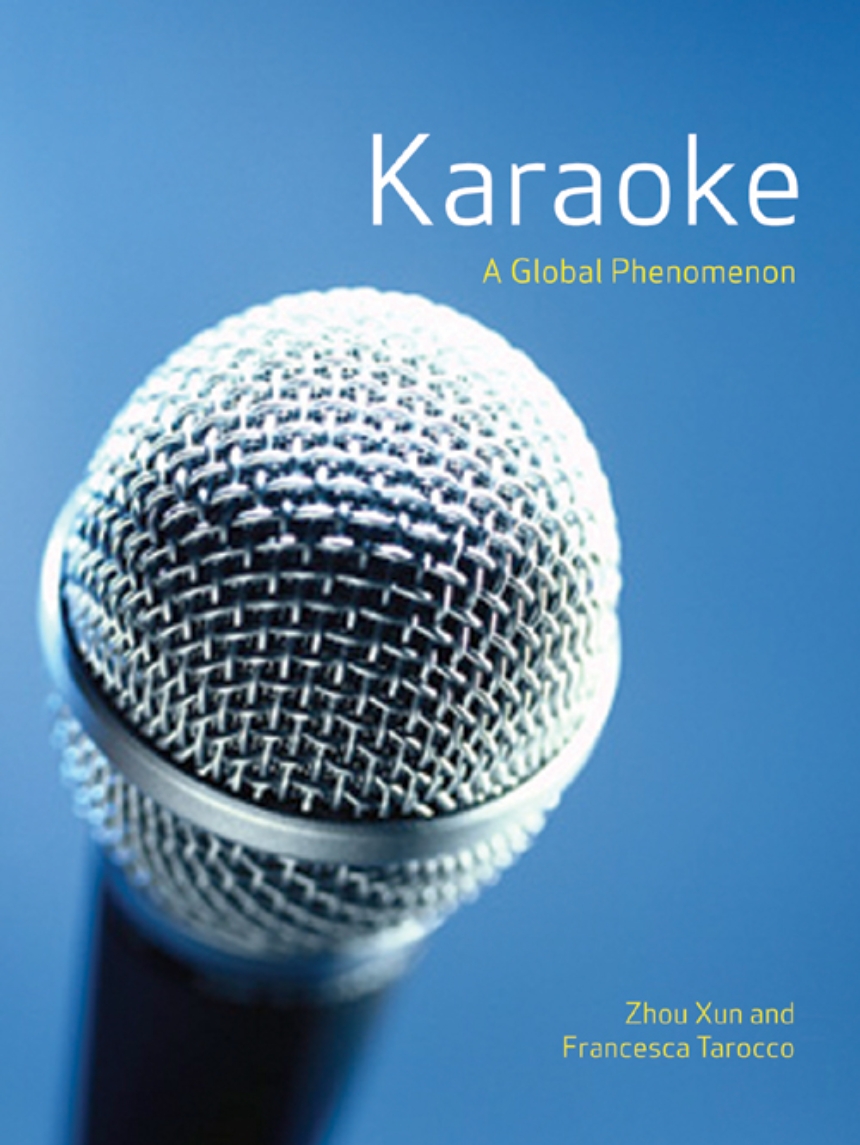Dancing Queen. Respect. Brandy (You’re a Fine Girl). There are some songs so infectious that you can’t help but belt out the lyrics along with the singer. Karaoke—meaning “empty orchestra” in Japanese—gets rid of the singer and leaves you in the spotlight alone. It is the social manifestation of our desire to sing, in tune or out, and in three short decades, it has exploded into a worldwide craze. In this unprecedented study, Zhou Xun and Francesca Tarocco engagingly examine karaoke and all its associated kitsch, crime, and weirdness.
Usually thought of as the pastime of desperately bad singers and slurring drunks, karaoke has never enjoyed a particularly stellar image. Xun and Tarocco, however, reveal its surprisingly complex history and significant cultural impact around the world. Originating in postwar Japan, karaoke soon spread to Southeast Asia and the West. Karaoke traces how it became a wildly successful social phenomenon that constantly evolved to keep pace with changes in technology and culture. Drawing on extensive research and international travels, the authors chart the varied manifestations of karaoke, from karaoke taxis in Bangkok to nude karaoke in Toronto to the role of karaoke in prostitution. Extensive personal anecdotes reveal the dramatic range of social experiences made possible by karaoke and how the obsession with performance and song has touched politics, history, and pop culture throughout global society.
Karaoke bars are at the heart of rich escapist fantasies and the authors—in readable fashion and using vibrant full-color illustrations—document this unpredictable fantasy world and the people who inhabit it. Karaoke,therefore, will delight anyone who has had the courage to take the mike and front the “empty orchestra.”
207 pages | 50 color plates | 5 7/8 x 7 3/4 | © 2007
Culture Studies:

